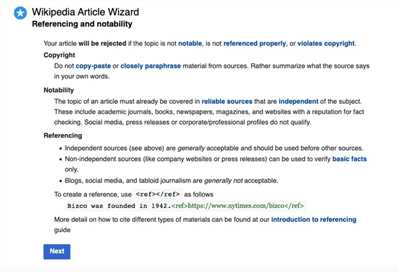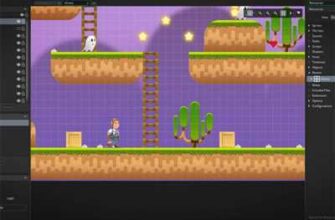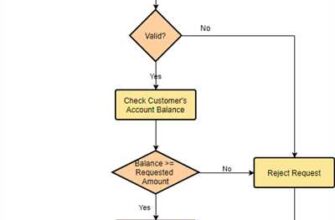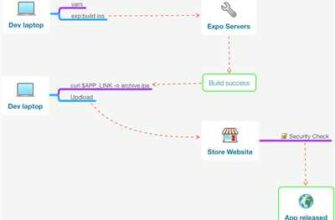
Wikipedia is one of the most popular online resources that millions of people around the world use on a daily basis. It has a vast collection of articles on a wide range of topics, making it a valuable source of information for anyone. If you’ve ever wondered how to create your own Wikipedia, you’re in luck as it is possible to do so. However, it requires a lot of work and resources to manage and maintain it effectively.
Creating your own Wikipedia starts with gathering the necessary resources and preparing the content. Just like Wikipedia, your wiki should have a strong basis of reliable sources and notable publications to ensure the reliability and credibility of the articles. You need to have enough articles to make it a useful resource for the public.
When creating your own wiki, it’s important to note that it does not mean simply copying Wikipedia’s content. You need to be prepared to create your own unique content without conflicts with existing articles. It’s also crucial to manage the submissions effectively and review them for any errors or inaccuracies before publishing them on your wiki.
- How to effectively create and manage a Wikipedia page
- What is a Wiki and how does it work
- Preparing for a Wikipedia submission
- 1. Determine your basis of interest
- 2. Gather reliable sources
- 3. Manage notable achievements
- 1 Are you notable enough
- 2 Are there any conflicts of interest
- 3 Have you prepared resources
- Reliability
- Amber Berson
- Sources
How to effectively create and manage a Wikipedia page
Creating and managing a Wikipedia page can be an incredibly rewarding experience. It allows you to share your achievements, passions, and interests with the world, while also contributing to the vast knowledge base that Wikipedia offers. However, it is important to approach the task of creating and managing a Wikipedia page with enough preparation and understanding of the platform’s guidelines.
1. Gather reliable sources: A Wikipedia page is only as good as its sources. When creating a page, you need to gather enough reliable and verifiable sources to back up the information you are presenting. This includes publications, books, articles, and any other credible resources that support what you are writing.
2. Create notable content: Wikipedia is not a platform for personal promotion or self-interest. The content you create should be based on what is notable and relevant to the wider public. Before creating a page, do some research to determine whether the subject of your page meets the notability guidelines set by Wikipedia.
3. Prepare the page before submission: Before submitting your page, it is important to work on it extensively. This includes adding content, organizing it in a logical manner, and making sure it adheres to Wikipedia’s formatting guidelines. Be prepared to revise and edit your page multiple times, ensuring that it is of high quality and meets the standards of Wikipedia.
4. Deal with conflicts of interest: When creating a Wikipedia page, it is important to be aware of any conflicts of interest that may arise. If you have a personal or financial interest in the subject of the page, it is best to either disclose it or refrain from creating the page altogether. Wikipedia values neutrality and transparency, so it is important to adhere to these principles.
5. Manage the page effectively: Once your page is live, the work does not stop. Managing a Wikipedia page requires ongoing attention and maintenance. This includes monitoring the page for any edits or updates, responding to queries or concerns from other Wikipedia users, and ensuring that the page remains accurate and up-to-date. It is important to handle any disputes or conflicts that may arise with professionalism and an open mind.
In conclusion, creating and managing a Wikipedia page can be a fulfilling endeavor, but it requires careful planning, reliable sources, and a commitment to the platform’s guidelines. By effectively managing your page and ensuring its reliability and accuracy, you can contribute to the vast knowledge base of Wikipedia and make a valuable contribution to the online community.
What is a Wiki and how does it work
A wiki is a type of website that allows users to collaboratively create, edit, and publish content. It is a platform where anyone can contribute their knowledge on a specific subject. Wikipedias, for example, are open to public contributions, allowing users to gather information from various sources and submit it to the website. The reliability and accuracy of the wiki pages, however, can be influenced by conflicts of interest or biased submissions.
Creating a wiki requires preparing enough resources and managing them effectively. You need to have a basis of notable achievements or interests to attract submissions from others. Amber Berson, a wiki enthusiast, says that to create a successful wiki, you should be prepared to face conflicts and disagreements from contributors. Despite this, the open nature of a wiki allows for a collective effort in gathering and verifying information.
So how does it work? Once a page is created, users can easily edit its content. The changes are saved and can be viewed by others, making it a collaborative process. Wikipedias, in particular, have a system where any Wikipedia user can make edits to articles. However, these edits are constantly reviewed by the community to ensure accuracy and reliability. Wikipedias work without any central authority, relying on the collective efforts of its community to maintain quality content.
Preparing for a Wikipedia submission
When creating your own Wikipedia page, it is important to properly prepare to ensure the success and reliability of your submission. There are several steps you should take in order to effectively gather and manage the information and resources needed for your page.
1. Determine your basis of interest

Before diving into creating a Wikipedia page, it is crucial to have a clear understanding of why you are interested in this topic. Identifying your basis of interest will help you stay focused and passionate throughout the process.
2. Gather reliable sources
Wikipedia pages are based on reliable sources and references. Take the time to gather reputable publications, articles, and other credible resources that can support the information you plan to include on your page. This will ensure the reliability and accuracy of your content.
3. Manage notable achievements
When preparing to create a Wikipedia page, it is important to identify and highlight any notable achievements or contributions you or your organization have made in relation to the topic. This will help establish your expertise and credibility.
Remember, creating a Wikipedia page is not as simple as writing a regular article. It is crucial to follow Wikipedia’s guidelines and policies to avoid conflicts and ensure the page’s compatibility with the platform’s standards.
If you are unfamiliar with how to navigate Wikipedia’s system, consider seeking assistance from experienced Wikipedia editors or consultants like Amber Berson. They can provide guidance and help you avoid common mistakes.
Overall, preparing for a Wikipedia submission requires sufficient research, reliable sources, and a clear understanding of the topic you are presenting. By following these steps, you can increase the chances of creating a successful and well-received Wikipedia page.
1 Are you notable enough
When it comes to creating your own Wikipedia page, the first question you need to ask yourself is whether you are notable enough. Notability is a key criterion for having a page on Wikipedia, and it is what differentiates Wikipedia from other open submission wikis.
Notability refers to the level of interest and resources available for managing an article or page. It is necessary to have notable achievements, work, or publications that can be cited as reliable sources.
So, how can you determine if you are notable enough to create your own Wikipedia page? Here are a few factors to consider:
- Gather your achievements: Take stock of your accomplishments, work, or publications that you believe make you notable. These can be academic achievements, professional contributions, noteworthy projects, or any other relevant accomplishments.
- Research similar topics or individuals: Look for existing Wikipedia pages on similar topics or individuals who are considered notable. This can give you an idea of the kind of information and level of detail that is expected.
- Assess the availability of reliable sources: Check if there are any publications, articles, or resources that can be used as references to support your notability. Wikipedia requires reliable sources to ensure accuracy and credibility.
It is important to note that even if you feel you meet these criteria, creating your own Wikipedia page without a basis of notable achievements or reliable sources can lead to conflicts and challenges. Wikipedia is an encyclopedia and strives for accuracy, so it is crucial to ensure that your page meets the necessary standards.
If you are still unsure about whether you are notable enough, you can consider reaching out to experienced Wikipedia editors or contacting the Wikipedia community for guidance. They can provide insights and help you understand the requirements better.
So, before you embark on creating your own Wikipedia page, take the time to assess your notability and gather the necessary resources to effectively manage it. This will ensure that your page is a reliable and valuable addition to the Wikipedia community.
2 Are there any conflicts of interest
When preparing articles or pages for your own Wikipedia, it’s essential to manage any potential conflicts of interest. While it’s an open platform where anyone can gather and submit information, the reliability and credibility of the Wikipedia content heavily rely on credible sources and notable works.
If you have a personal or professional interest in a topic, it can create conflicts. However, you can still contribute effectively if you’re able to maintain objectivity and adhere to the Wikipedia guidelines. The key is to ensure that your submissions are based on reliable sources and not solely driven by personal bias.
One way to overcome conflicts of interest is to gather enough resources and it-wiki publications on a particular topic. By relying on well-established sources and expert opinion, you can create articles that are informative and unbiased. Additionally, you should be transparent about any potential conflicts and declare them on the relevant discussion pages.
It’s important to note that good intentions and achievements alone do not validate the inclusion of content on Wikipedia. The notability and relevance of the subject matter play a crucial role. If you find that your submissions are repeatedly being removed or flagged for not meeting Wikipedia’s standards, it’s essential to reevaluate the credibility and relevance of your work.
In summary, conflicts of interest can arise when creating your own Wikipedia, but with the right approach, transparency, and adherence to guidelines, you can effectively manage them. By using reliable sources and maintaining objectivity, you can contribute to the platform’s integrity and provide valuable information to the public.
3 Have you prepared resources
When creating your own Wikipedia page, it is important to gather enough reliable resources that support the information you are going to include. Without notable and reliable resources, your page may not meet Wikipedia’s standards for inclusion.
To effectively manage and prepare your resources, there are several steps you can take:
- Open Wikipedia and browse through similar pages
- Gather publications, articles, and any other relevant sources
- Check the reliability of your sources
- Have you gathered enough resources?
One of the best ways to start is by researching other pages on similar topics. Take note of the sources they have used, the structure of their pages, and any conflicts or discussions that may have arisen in the editing process. This will give you an idea of what is expected and how you can make your page stand out.
Look for reputable publications, articles, and any other sources that are considered reliable in your field of interest. These can include academic journals, books, news articles, and reputable websites. Make sure to compile a list of these sources and keep them organized for easy reference.
When gathering your resources, make sure to evaluate their reliability. Consider the credibility of the authors, the publication or website, and the overall reputation of the source. If there are any doubts about the reliability of a certain source, it is better to find an alternative one.
Make sure that you have enough resources to support the content you are planning to include on your page. Wikipedia requires verifiable information, so it is important to have multiple reliable sources for each piece of information you add. Having a variety of sources helps to ensure the accuracy and credibility of your page.
By following these steps and gathering enough reliable resources, you can increase the chances of having your submission accepted and your wiki page created successfully.
Reliability
In preparing and creating pages for your own wiki, reliability is a crucial factor to consider. When it comes to managing articles and gathering information for your wiki, there is a need to ensure the reliability of the sources you use.
Before creating any page or submitting articles to the public, it is important to gather enough resources and verify their reliability. While Wikipedia allows open editing, conflicts can arise if the information provided is not reliable.
When creating a wiki, it is recommended to base your articles on reliable sources. These sources could be publications, public interest resources, or credible websites. By using reliable sources, you can effectively create a wiki that is trusted by its readers and does not have any conflicts.
Amber Berson, a Wikipedia editor, says that one of the key criteria for determining reliability is the reputation of the source. If a source has a history of accurate and reliable information, it can be considered more reliable than others.
Another aspect to consider is the reliability of the information itself. It is important to fact-check the content and ensure that it is based on verified facts and not personal opinions or biases. This will help maintain the credibility of your wiki and make it a trusted resource.
While there is no set formula for determining reliability, there are guidelines that you can follow. The Wikipedia community has developed a set of criteria, known as the “reliable sources” guidelines, which can help you make informed decisions when choosing sources for your wiki.
When working on your own wiki, it is important to understand what reliability means for your specific topic. Different topics may have different standards for reliability, so it is essential to familiarize yourself with the standards and guidelines relevant to your area of interest.
To sum it up, reliability is a crucial aspect when creating your own wiki. By gathering reliable sources, fact-checking information, and following community guidelines, you can ensure that your wiki is a trustworthy resource for your readers.
Amber Berson
Amber Berson is a notable figure in the world of wikipedias. When it comes to creating her own wikipedia, Berson has achieved remarkable success.
However, it is important to understand the work that goes into managing such pages. Creating a wikipedia is not as simple as it may seem. Preparation is key, and Berson knows how to effectively gather and submit the necessary information for creating reliable and conflict-free articles.
Berson’s interest in wikipedia started when she realized the open nature of the platform still had room for improvement. She wanted to have her say and ensure that the articles on her topic of interest, Amber Berson, were accurate and well-prepared.
Without proper preparation, it is easy to create a wikipedia page that does not meet the reliability standards of the platform. Berson, however, has managed to create notable publications that serve as the basis for many wiki articles.
If you’re interested in creating your own wikipedia, you can learn a lot from Amber Berson and her achievements. Make sure to gather enough resources and information before submitting your page for review.
Amber Berson’s work is a testament to the power of wikipedias and the impact one person can make when they are dedicated to creating a reliable and informative wiki page.
Sources
When creating your own Wikipedia, it is important to gather reliable and notable sources to effectively manage and create the content. Without proper sources, any page you create on your Wiki may be seen as unreliable or lacking credibility.
There are several ways you can gather sources for your Wiki articles:
- Gather information from books, journals, and publications that are relevant to the topic you are creating a Wiki page for. Make sure to cite them properly to ensure the reliability of your content.
- Research online resources and websites that have accurate and trustworthy information. Check the reliability and credibility of the sources before using them in your Wiki articles.
- Use open wikis like Wikipedia itself to gather information and references. However, be cautious of any conflicts of interest or biased information that may be present in these sources. Verify the information from multiple sources to ensure accuracy.
Preparing a Wiki page requires gathering enough sources to support the content you are creating. It is important to have at least three reliable sources to support the information and claims in your Wiki article.
In summary, when creating your own Wikipedia, it is essential to gather reliable sources and verify the information to maintain the credibility and reliability of your content.










